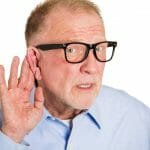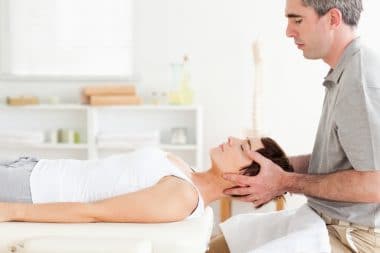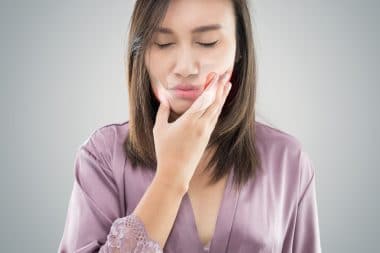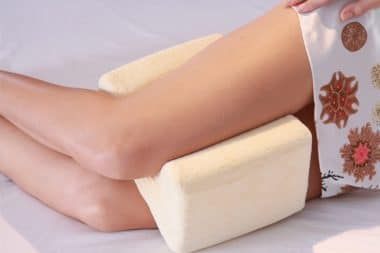The main focus of this article is to differentiate Arthralgia from Arthritis. As a person who does not have extensive medical knowledge, I have previously labeled all joint pain as arthritis. There are important differences between these two diagnosis. Arthralgia and Arthritis differ in symptoms, causes and risk factors. It is important to get an accurate diagnosis. Signs of arthritis are pain, stiffness and swelling in the joints. Arthralgia, on the other hand, may be diagnosed if you have joints with reduced motion range, numbness or tingling in the joints. To help your health care professional determine an accurate diagnosis, keep a journal of pain levels through out your day and your activity level.
What is Arthralgia?
By definition arthralgia is joint pain that is a symptom of an injury, an infection, an illness or allergic reaction to a medication. Arthralgia is the term used to describe non-inflammatory joint pain. It is a condition that occurs due to another condition. This can be pain in one joint or multiple joints.
Arthralgia can be an early indication of arthritis. A symptom of arthritis is joint pain. Joint inflammation is a symptom of arthritis.
What is Arthritis?
Arthritis is joint pain with accompanying inflammation that is not a caused by something else. The Arthritis Foundation lists 62 different types of arthritis.
Causes of Arthralgia
Injury — sprains, strains, overuse, excessive exertion
Infection — (influenza, measles, mumps, Lyme disease, hepatitis)
Immune Disorders
Allergic Reactions
Autoimmune Conditions (Lupus, Rheumatoid Arthritis, Scleroderma)
Degenerative Diseases (Osteoarthritis, Fibromyalgia these can effect more than one joint.)
Breast Cancer Therapy (This can be a side effect of cancer treatment. Let your doctor know immediately.)
Tumors
Causes of Arthritis
There can be many causes of arthritis depending on the type of arthritis you have.
Osteoarthritis — is the loss of cartilage between the ends of bones. When this cartilage decreases you often end up with pain during movement. This pain is of short duration, mobility is usually decreased, end of day pain, and stiff morning joints.
Symptoms of Arthralgia
– Joint Pain
– Joint Stiffness
– Numbness
– Reduced range of motion
– Aches
– Muscle Pain
– Inflammation
– Swelling, tenderness and redness around the joint
– Difficulty to perform normal activities
– Interferes with sleep.
Common areas of joint pain include: hands, wrists, shoulders, elbows, knees, feet hips, and back.
Symptoms of Arthritis
– Joint Pain
– Joint Stiffness
– Swelling
– Redness around the joint
Risk Factors for Arthralgia
– Older Age
– Repetitive Motions
– Previous injury or surgery
– Obesity
Risk Factors of Arthritis
– Family History
– Older Age
– Overweight
– Women are more at risk than men.
Key Points:
- 1Joint pain with no inflammation is arthralgia. Joint pain with inflammation is arthritis.
- 2Risk factors for arthralgia include older age, obesity, repetitive motion, or a previous injury or surgery.
- 3The main goal of arthritis treatment is to improve mobility and reduce pain all the while preventing further damage to the joints.
Complications of Arthralgia
See your doctor immediately if:
– Your joint pain is accompanied with: swelling, redness, soreness, warmth around the joint.
– Your joint pain is injury related and you have any of these complications: joint deformity, inability to use, intense pain or swelling. Something could very well be broken.
– You have fever, chills, cannot move joint
To diagnose arthralgia, your doctor will look at your medical history for any previous reports of injury or pain. Knowing what time of the day the joint pain occurs and the presence of other symptoms, like fever, sore throat, fatigue, or swelling, can aid in arthralgia diagnosis as well.
Treatments of Arthralgia
– In order to treat the underlying condition that is responsible for the joint pain must be determined.
– Most joint pain can be handled at home with: Rest, Ice (15 to 20 minutes 3 times per day), Over the counter pain medication — Ibuprofen, acetaminophen, a heating pad, warm bath or shower can relax muscles and increase circulation, and elevate the joint.
– Topical Pain Relievers — an arthritis cream containing methyl salicylate or other pain relief cream
– Physical Therapy — Stretching exercises, massage and or chiropractic care.
– Prescription Pain Medicine
– Immunosuppressant — this necessary if the cause is an immune system dysfunction.
– Antibiotics — if an infection is the cause
– Discontinue Medication — if an allergic reaction to a medication is the cause.
– Joint Replacement Surgery
Treatment for Arthritis
– Goal of treatment is to improve mobility, reduce pain, and prevent further joint damage.
– Prescribed Analgesics
– Pain Relief Medication — Acetaminophen, Ibuprofen
– Prescribed Medication
– Capsaicin creams
– Joint replacement surgery
Prevention:
Living a healthy lifestyle: healthy weight, balanced diet, regular exercise.
Read the full article at: https://www.belmarrahealth.com/arthralgia-vs-arthritis-joint-pain-causes-symptoms-risk-factors-and-complications/
Important Questions to Answer:
Where did your pain start?
When did your pain start?
What were you doing when you first noticed the pain?
Where did it move next?
Is there arthritis in your family? (Many disorders are familial)
What does your joint pain keep you from doing?
What does the pain feel like?
Can you put your finger on the spot that hurts?
On a scale from 1-10, with 10 being the worst paint possible, rate your pain?
Does the pain come and go?
What can you do to make the pain go away?
How long does the pain last?
Other Sources:
https://www.ncbi.nlm.nih.gov/books/NBK303/
https://en.wikipedia.org/wiki/Arthralgia
https://www.mayoclinic.org/symptoms/joint-pain/basics/definition/sym-20050668
https://www.news-medical.net/health/What-is-Arthralgia.aspx
https://www.dictionary.com/browse/arthralgia
https://www.ssdrc.com/ssd-arthralgia.html
https://www.drugs.com/cg/arthralgia-aftercare-instructions.html
https://chemocare.com/chemotherapy/side-effects/joint-pain-arthralgias.aspxhttps://www.healthhype.com/joint-pain-causes-of-arthralgia-in-single-or-multiple-joints.html







